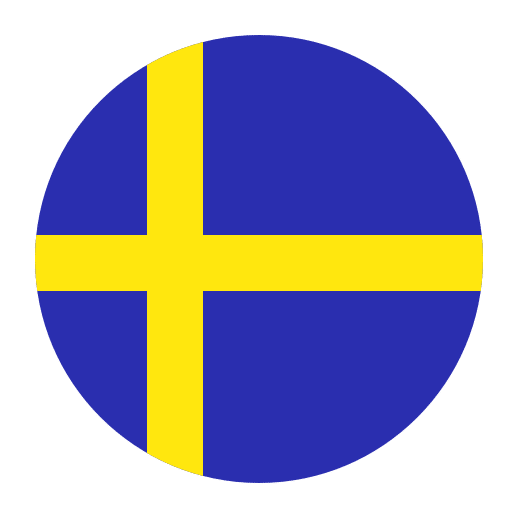Swedish is a fascinating language with a rich cultural heritage. For English speakers interested in mastering Swedish, one essential area of vocabulary is health and medicine. Understanding these terms can be particularly useful if you ever find yourself in a medical situation in Sweden or if you’re simply curious about how the Swedish language encompasses these vital aspects of life.
In this article, we’ll explore some key Swedish terms related to health and medicine. These words and phrases will not only help you communicate more effectively in healthcare settings but also enhance your overall Swedish language skills. Let’s dive in!
Basic Medical Vocabulary
To start, let’s cover some basic medical vocabulary. These are essential terms that you might encounter in various healthcare contexts.
– **Doctor**: Läkare
– **Nurse**: Sjuksköterska
– **Patient**: Patient
– **Hospital**: Sjukhus
– **Clinic**: Klinik
– **Pharmacy**: Apotek
– **Prescription**: Recept
– **Medicine**: Medicin
These fundamental words will form the foundation of your medical vocabulary in Swedish.
Common Symptoms and Conditions
Next, let’s delve into some common symptoms and medical conditions. Knowing these terms can be incredibly helpful when describing your symptoms to a healthcare professional or understanding what someone else is experiencing.
– **Fever**: Feber
– **Cough**: Hosta
– **Cold**: Förkylning
– **Headache**: Huvudvärk
– **Stomachache**: Magont
– **Sore Throat**: Ont i halsen
– **Allergy**: Allergi
– **Infection**: Infektion
– **Diabetes**: Diabetes
– **Asthma**: Astma
– **High Blood Pressure**: Högt blodtryck
– **Heart Attack**: Hjärtattack
Medical Procedures and Treatments
Understanding terms related to medical procedures and treatments is also essential. Whether you need to explain a past medical procedure or understand a treatment plan, these terms will come in handy.
– **Surgery**: Kirurgi
– **Operation**: Operation
– **X-ray**: Röntgen
– **Blood Test**: Blodprov
– **Vaccination**: Vaccination
– **Physical Therapy**: Fysioterapi
– **Chemotherapy**: Cellgiftsbehandling
– **Radiation Therapy**: Strålbehandling
– **Anesthesia**: Narkos
– **Biopsy**: Biopsi
– **Dialysis**: Dialys
Medical Specialties
Swedish has specific terms for various medical specialties, just like English. These terms can help you understand the different areas of expertise within the medical field.
– **Cardiology**: Kardiologi
– **Dermatology**: Dermatologi
– **Neurology**: Neurologi
– **Pediatrics**: Pediatrik
– **Psychiatry**: Psykiatri
– **Oncology**: Onkologi
– **Gynecology**: Gynekologi
– **Ophthalmology**: Oftalmologi
– **Orthopedics**: Ortopedi
– **Gastroenterology**: Gastroenterologi
– **Endocrinology**: Endokrinologi
Pharmacological Terms
When it comes to medicine and treatment, pharmacological terms are crucial. These words will help you understand instructions related to medication and how to use it properly.
– **Dosage**: Dosering
– **Side Effects**: Biverkningar
– **Painkiller**: Smärtstillande
– **Antibiotic**: Antibiotika
– **Prescription Drug**: Receptbelagd medicin
– **Over-the-Counter Drug**: Receptfri medicin
– **Tablet**: Tablett
– **Capsule**: Kapsel
– **Syrup**: Sirap
– **Injection**: Injektion
– **Cream**: Kräm
– **Inhaler**: Inhalator
Emergency Vocabulary
In emergency situations, knowing the right vocabulary can be a matter of life and death. Here are some critical terms to be aware of.
– **Emergency**: Akut
– **Ambulance**: Ambulans
– **First Aid**: Första hjälpen
– **CPR (Cardiopulmonary Resuscitation)**: HLR (Hjärt-lungräddning)
– **Poisoning**: Förgiftning
– **Burn**: Brännskada
– **Choking**: Kvävning
– **Unconscious**: Medvetslös
– **Fracture**: Benbrott
– **Bleeding**: Blödning
– **Stroke**: Stroke
Communicating with Healthcare Professionals
Being able to effectively communicate with healthcare professionals is crucial. Here are some useful phrases and sentences that can help you describe your condition and understand their instructions.
– **I need a doctor.**: Jag behöver en läkare.
– **I have a fever.**: Jag har feber.
– **I feel dizzy.**: Jag känner mig yr.
– **I have an allergy to…**: Jag är allergisk mot…
– **Can you prescribe something for the pain?**: Kan du skriva ut något mot smärtan?
– **How often should I take this medicine?**: Hur ofta ska jag ta den här medicinen?
– **Are there any side effects?**: Finns det några biverkningar?
– **I need an appointment.**: Jag behöver en tid.
– **Where is the nearest pharmacy?**: Var är närmaste apotek?
– **I need help immediately.**: Jag behöver hjälp omedelbart.
Understanding Medical Instructions
Medical instructions can sometimes be complex. Here are some common phrases you might encounter and what they mean.
– **Take one tablet twice a day.**: Ta en tablett två gånger om dagen.
– **Apply the cream to the affected area.**: Applicera krämen på det drabbade området.
– **Rest and drink plenty of fluids.**: Vila och drick mycket vätska.
– **You need to come back for a follow-up.**: Du behöver komma tillbaka för en uppföljning.
– **Avoid heavy lifting.**: Undvik tunga lyft.
– **Take this medication with food.**: Ta denna medicin med mat.
– **Do not drive after taking this medicine.**: Kör inte efter att ha tagit denna medicin.
– **Call us if your symptoms get worse.**: Ring oss om dina symtom blir värre.
Mental Health Vocabulary
Mental health is an essential aspect of overall well-being. Here are some terms related to mental health that you might find useful.
– **Mental Health**: Mentalt hälsa
– **Depression**: Depression
– **Anxiety**: Ångest
– **Stress**: Stress
– **Therapist**: Terapeut
– **Counseling**: Rådgivning
– **Medication**: Medicinering
– **Support Group**: Stödgrupp
– **Psychologist**: Psykolog
– **Psychiatrist**: Psykiater
– **Mental Disorder**: Mentalt störning
– **Panic Attack**: Panikattack
Describing Mental Health Symptoms
Being able to describe mental health symptoms can be crucial for getting the right help. Here are some useful phrases.
– **I feel very anxious.**: Jag känner mig väldigt orolig.
– **I can’t sleep.**: Jag kan inte sova.
– **I feel hopeless.**: Jag känner mig hopplös.
– **I have lost interest in things I used to enjoy.**: Jag har förlorat intresset för saker jag brukade njuta av.
– **I have trouble concentrating.**: Jag har svårt att koncentrera mig.
– **I feel overwhelmed.**: Jag känner mig överväldigad.
– **I have frequent mood swings.**: Jag har ofta humörsvängningar.
– **I need to talk to someone.**: Jag behöver prata med någon.
Conclusion
Mastering Swedish terms for health and medicine can significantly enhance your ability to communicate effectively in medical situations. Whether you’re in Sweden or interacting with Swedish-speaking healthcare professionals, these terms will prove invaluable.
Practice these words and phrases regularly, and you’ll find yourself becoming more confident in discussing health-related matters in Swedish. Remember, language learning is a journey, and every new word you learn brings you one step closer to fluency. Happy learning!

